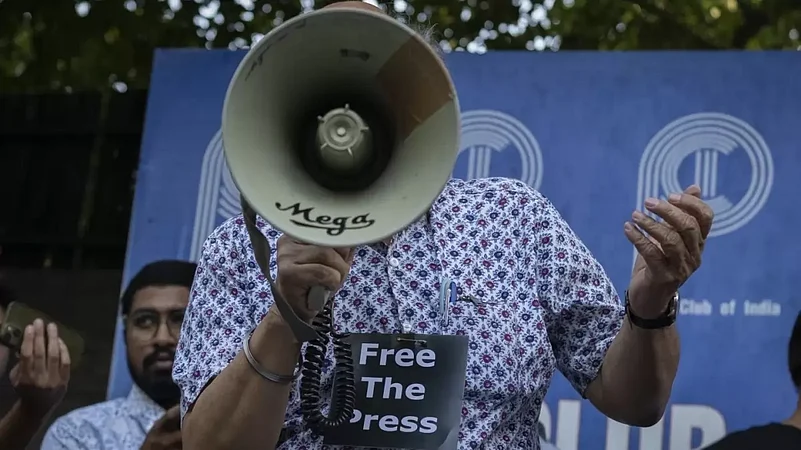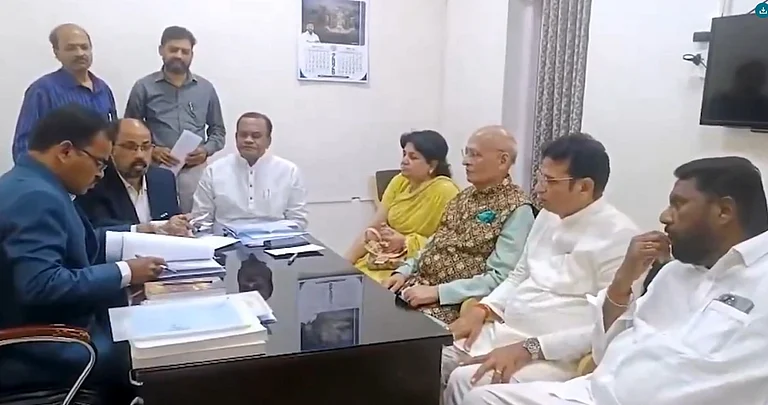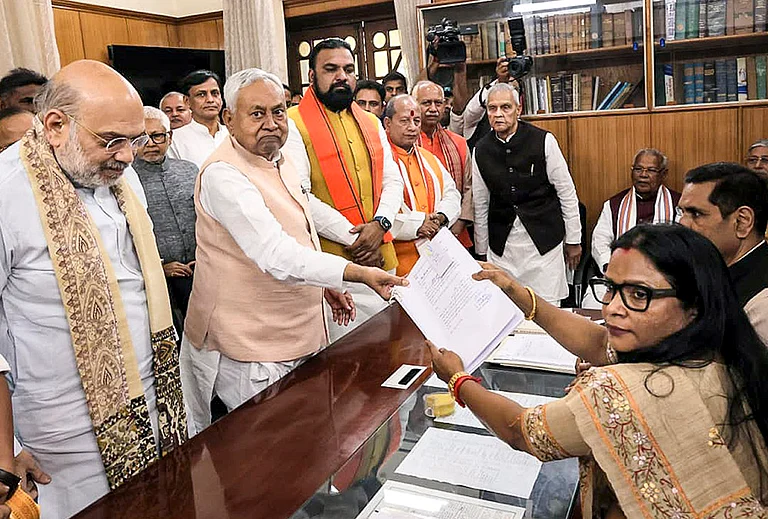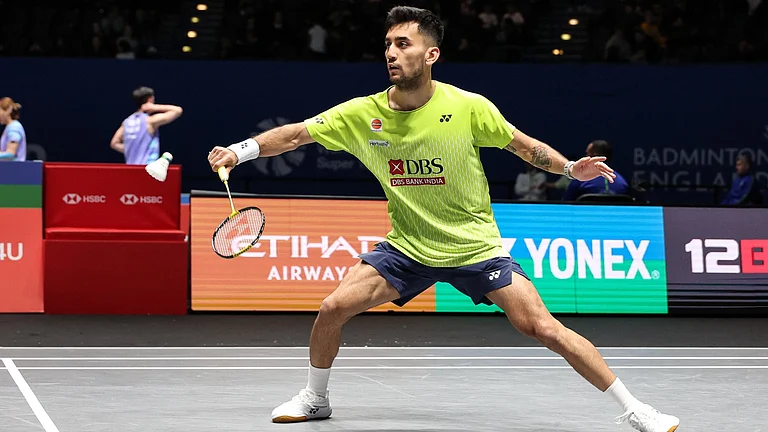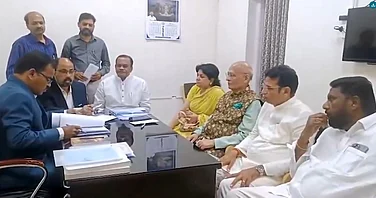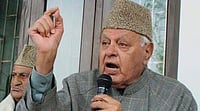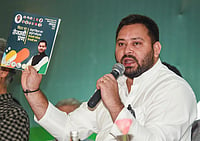This week's raids against NewsClick, its editor, journalists and others associated with the news portal have brought back focus on press freedom in India. According to Reporters Without Borders, India ranks a lowly 161 on the World Press Freedom Index 2023 among 180 countries. The country slipped 11 positions in 2023 compared to last year. Even Pakistan fared better at rank 150.
The report sounds alarm as far as the world's largest democracy, home to more than 1.4 billion people, is concerned - press freedom is in crisis here, it states.
"The violence against journalists, the politically partisan media and the concentration of media ownership all demonstrate that press freedom is in crisis in 'the world’s largest democracy', ruled since 2014 by Prime Minister Narendra Modi, the leader of the Bharatiya Janata Party (BJP) and the embodiment of the Hindu nationalist right."
The index ranks a country on the basis of five indicators and India has registered a staggering fall on two of these - slipping 24 positions on both political and legislative indicators. This reflects poorly on the political and legislative environment in India as far as journalists are concerned. However, the ranking of 172 on the security parameter is the most concerning. Only eight other countries in the world have a worse security environment for journalists compared to India. These include Mexico, China, Iran, Pakistan, Syria, Yemen, Ukraine and Myanmar.
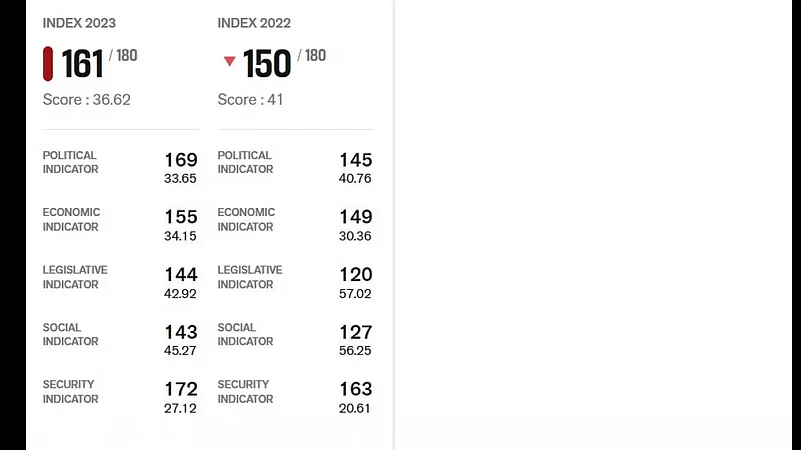
The security indicator takes into account the ability of a journalist to collect information and report the same freely without any unnecessary threat of physical or professional harm, and psychological or emotional distress.
The RSF notes with concern that India continues to remain 'one of the world’s most dangerous countries for the media' and cites that the country loses three or four journalists on average every year in the line of duty.
"Journalists (in India) are exposed to all kinds of physical violence including police violence, ambushes by political activists, and deadly reprisals by criminal groups or corrupt local officials. Supporters of Hindutva, the ideology that spawned the Hindu far right, wage all-out online attacks on any views that conflict with their thinking," the body notes.
"Terrifying coordinated campaigns of hatred and calls for murder are conducted on social media, campaigns that are often even more violent when they target women journalists, whose personal data may be posted online as an additional incitement to violence," it adds.
RSF specifically mentions Kashmir, whose special status was revoked four years ago, as a region of concern where "reporters are often harassed by police and paramilitaries, with some being subjected to so-called 'provisional' detention for several years".
The RSF 2023 report further notes with concern the tendencies in India towards the concentration of media ownership. This concentration of ownership is more stark at the regional level.
"Originally a product of the anti-colonial movement, the Indian press used to be seen as fairly progressive but things changed radically in the mid-2010s, when Narendra Modi became prime minister and engineered a spectacular rapprochement between his party, the BJP, and the big families dominating the media," the report adds.
RSF also points out that journalists in India do not have any specified legal safeguards. Charges of defamation, sedition, contempt of court and endangering national security are frequently being slapped against journalists who are critical of the government and who are then branded as “anti-national,” it states.
As of 2 pm, October 5, one journalist has been killed in India and 8 others detained/arrested in the year 2023.


